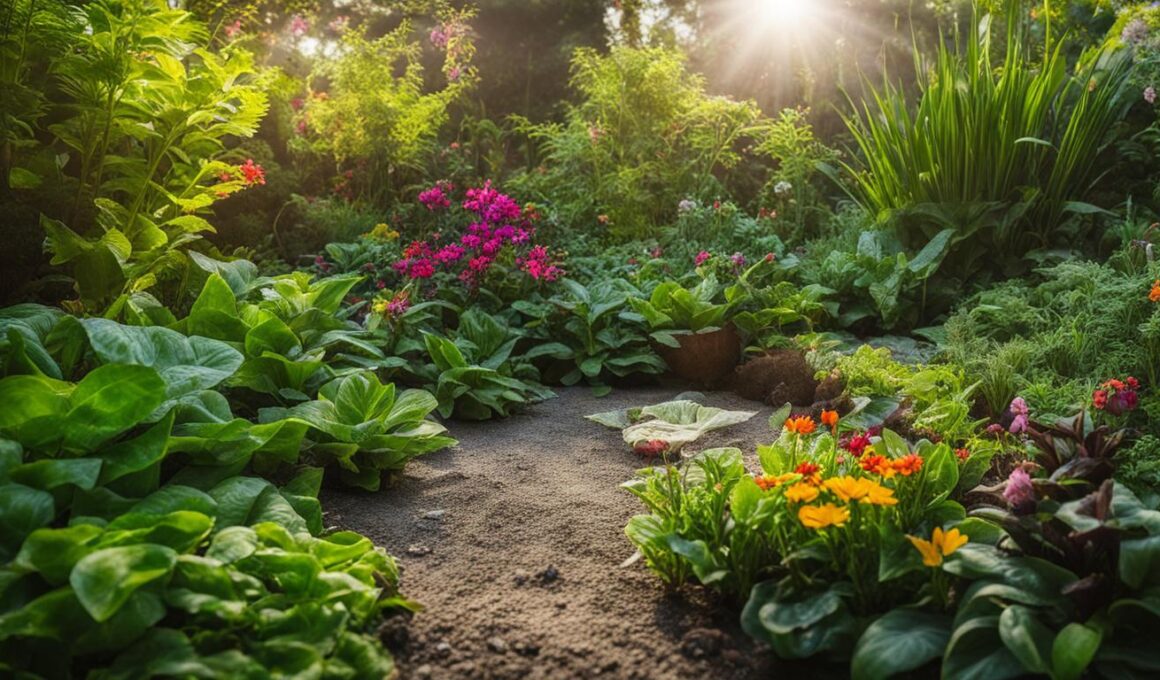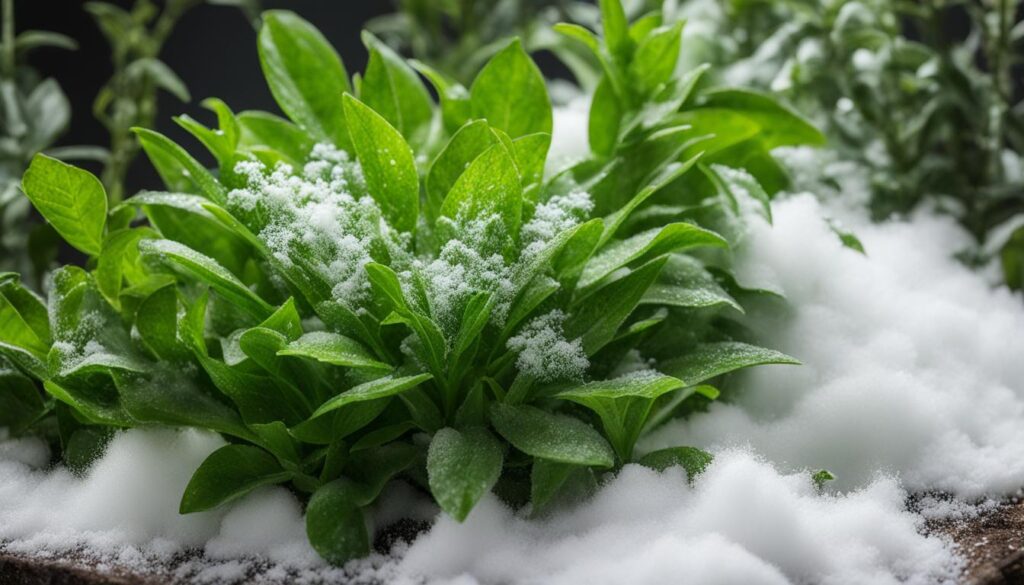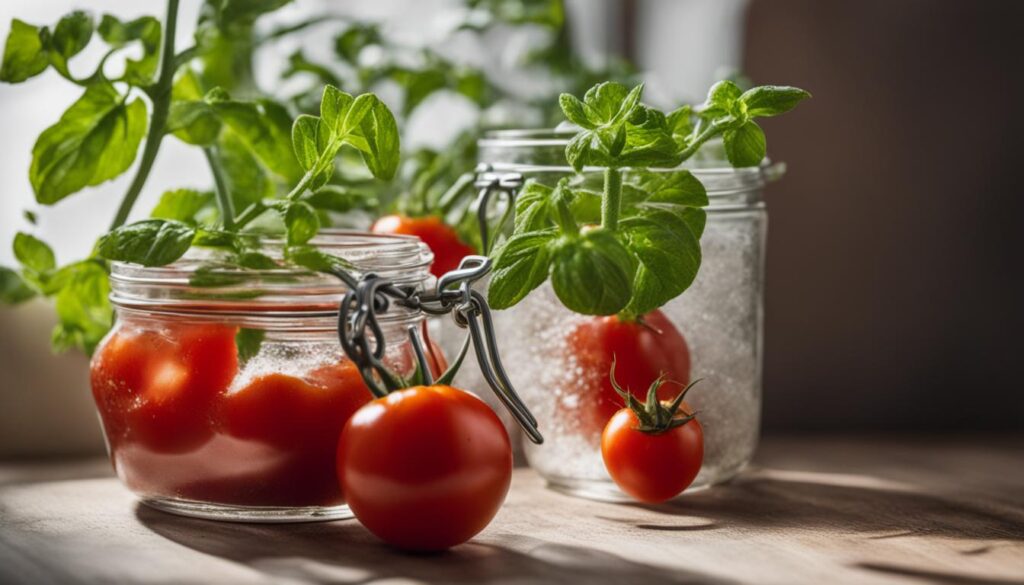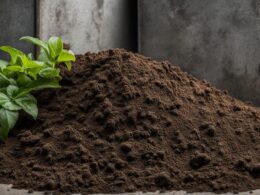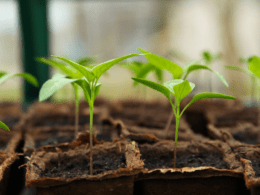Gardening enthusiasts are always on the lookout for natural and affordable solutions to enhance the health and vitality of their plants. And when it comes to unleashing the hidden potential of your garden, one ingredient stands out: baking soda. Yes, that versatile white powder sitting in your pantry can work wonders in your garden, transforming it into a thriving oasis of healthy plants. In this article, we will uncover the various ways baking soda can benefit your plants, from acting as a natural fungicide to aiding in soil pH adjustment and pest control. So, let’s dig in and discover the secrets of what baking soda can do for your beloved plants.
Key Takeaways:
- Baking soda has multiple uses in gardening, including natural fungicide properties, soil pH adjustment, pest deterrent abilities, and weed control.
- By incorporating baking soda into your gardening techniques, you can enhance the flavor of tomatoes, accelerate fruit ripening, create healthier compost, extend the vase life of cut flowers, and boost the effectiveness of fertilizers.
- When using baking soda in your garden, remember to test soil pH, take precautions to avoid contact with nearby plants, and follow recommended application guidelines.
- Regular use of baking soda in the garden can help maintain a healthy environment for your plants, reducing the need for harsh chemicals and promoting natural remedies.
- Experiment with baking soda in different areas of your garden to explore its full potential and enjoy the benefits of this affordable and versatile ingredient.
Natural Fungicide
Baking soda possesses remarkable properties that make it an effective natural fungicide for plants. It creates an alkaline environment that inhibits the growth and spread of fungal diseases, such as powdery mildew, which can be devastating to plant health. By harnessing the power of baking soda, you can protect your garden from these destructive pathogens and ensure the vitality of your plants.
To utilize baking soda as a natural fungicide, you can create a simple and cost-effective spray solution. Combine one tablespoon of baking soda, a few drops of liquid soap, and one gallon of water in a spray bottle. Mix the ingredients thoroughly until the baking soda is completely dissolved. You can then apply this mixture to your plants, targeting the areas affected by fungal infections, every one to two weeks.
When using the baking soda spray, it’s important to cover the entire plant, including the undersides of the leaves, as fungal diseases often thrive in these hidden areas. The alkaline properties of baking soda create an unfavorable environment for fungal growth, effectively controlling and eliminating powdery mildew and other fungal infections. Regular applications of the baking soda spray will help maintain the health and vigor of your plants, ensuring their longevity and productivity in your garden.
Baking Soda: A Natural Solution for Soil pH Adjustment
One of the remarkable properties of baking soda is its ability to act as a natural pH balancer for your garden soil. If you are dealing with acidic soil, incorporating baking soda can help create a more favorable environment for your plants to thrive. By raising the pH level, baking soda opens the door to a wider range of plant varieties that prefer neutral or slightly alkaline conditions.
Before making any adjustments, it is important to test the soil pH to ensure that you achieve the desired balance. You can easily find pH testing kits at your local gardening center or use pH test strips. Once you know the current pH level, you can determine the amount of baking soda needed to make the necessary adjustments.
When applying baking soda to adjust the soil pH, it is best to do so gradually over time. Start by applying a small amount and monitor the changes in the pH level. Remember to give your plants time to adjust to the new pH conditions before applying any additional baking soda.
Benefits of Using Baking Soda for Soil pH Adjustment:
- Improves nutrient availability: A balanced pH level enables plants to efficiently absorb essential nutrients from the soil.
- Promotes healthy root development: By providing an optimal pH range, baking soda encourages robust root growth.
- Prevents nutrient deficiencies: Proper pH adjustment prevents imbalances that can lead to nutrient deficiencies, ensuring healthy and vigorous plants.
Baking soda offers a natural and cost-effective solution for adjusting soil pH, allowing you to create an optimal growing environment for your plants. Harness the power of this versatile substance to transform your garden and cultivate thriving, vibrant plants.
Pest Deterrent
When it comes to maintaining a pest-free garden, baking soda can be your secret weapon. This versatile ingredient has natural deterrent properties that can help keep common pests at bay. Whether you’re dealing with ants, cockroaches, or even rabbits, baking soda can provide an eco-friendly solution to protect your plants and keep unwanted visitors out.
Why Baking Soda Works as a Pest Deterrent
Baking soda disrupts the sensory receptors of pests, making it difficult for them to navigate and find food. Its gritty texture also acts as a deterrent, creating an uncomfortable surface that pests are reluctant to cross. By sprinkling baking soda around affected areas, you can create a natural barrier that deters pests from entering your garden.
Using Baking Soda as a Pest Deterrent
To effectively use baking soda as a pest deterrent, simply sprinkle it around the perimeter of your garden or near areas where pests are commonly found. For ants and cockroaches, create a line of baking soda along their entry points to discourage their invasion. If rabbits are a concern, sprinkle baking soda around your plants or create a protective barrier around your garden. Remember to reapply after rain or as needed.
- Baking soda disrupts sensory receptors of pests
- Gritty texture acts as a deterrent
- Use baking soda to create a natural barrier
- Sprinkle around the perimeter or entry points
- Apply as needed for ongoing protection
By incorporating baking soda into your pest control arsenal, you can protect your plants and maintain a pest-free garden without relying on harmful chemicals.
Weed Control
When it comes to maintaining a pristine garden, weed control is a top priority. Baking soda can be your secret weapon in the ongoing battle against unwanted vegetation. This natural and eco-friendly solution is not only effective but also affordable. By incorporating baking soda into your weed control routine, you can keep your garden looking its best without the use of harmful chemicals.
So, how does baking soda help control weeds? When applied directly to weeds, baking soda alters the pH balance, making it inhospitable for growth. The alkaline nature of baking soda dries out the foliage, inhibiting weed development. It is important to note that baking soda should be used carefully and directly on the target weeds, avoiding contact with nearby plants to prevent any unintended damage.
To effectively utilize baking soda for weed control, follow these simple steps:
- Identify the weeds you want to target.
- Sprinkle a generous amount of baking soda directly onto the weeds.
- Ensure the baking soda covers the foliage thoroughly.
- Repeat this process as needed, especially after rainfall or watering.
By incorporating baking soda into your weed control regimen, you can enjoy a weed-free garden while minimizing the use of harsh chemicals. As with any gardening technique, it’s essential to monitor the progress and adjust your approach as needed. With baking soda on your side, you can achieve a thriving and beautiful garden.
Tomatoes Sweetener
Baking soda can do more than just adjust soil pH and repel pests in your garden. It can also enhance the flavor of your tomatoes, making them sweeter and more enjoyable to eat. By understanding the role of baking soda in maintaining the pH balance and facilitating nutrient absorption, you can unlock the secret to delectable tomatoes.
When sprinkled around the base of tomato plants, baking soda helps regulate the pH balance in the soil. This is crucial because tomatoes thrive in slightly acidic soil with a pH level between 6 and 7. The alkaline nature of baking soda neutralizes excessive acidity, creating an optimal environment for the plants to absorb nutrients efficiently. As a result, your tomatoes will develop a sweeter taste due to the improved uptake of essential sugars and flavors.
It’s important to note that while baking soda can enhance tomato sweetness, it is not a miracle worker. Factors such as tomato variety, sunlight exposure, and overall plant health also play a role in determining flavor. However, incorporating baking soda into your gardening routine can certainly contribute to the overall taste and quality of your homegrown tomatoes.
Tips for Using Baking Soda as a Tomatoes Sweetener:
- Apply a light dusting of baking soda around the base of your tomato plants, ensuring it doesn’t come into direct contact with the leaves or stems.
- Monitor the pH level of your soil using a pH testing kit to ensure it remains within the desired range for tomato cultivation.
- Consider the specific needs of your tomato variety and adjust the amount of baking soda accordingly. Some varieties may require more or less to achieve the desired flavor enhancement.
- Combine baking soda application with other best practices for growing tomatoes, such as proper watering, regular pruning, and adequate sunlight exposure.
“With the help of baking soda, you can take your homegrown tomatoes to the next level of flavor perfection. By maintaining the ideal pH balance and promoting optimal nutrient absorption, baking soda acts as a natural sweetener for your tomatoes, enhancing their taste and making them the star ingredient in any dish.”
Conclusion
Baking soda is a game-changer when it comes to gardening. By harnessing its natural properties, you can rejuvenate your plants and create a flourishing garden. Whether you’re looking to combat fungal diseases, adjust soil pH, deter pests, control weeds, sweeten tomatoes, improve compost, extend cut flower life, or boost fertilizer effectiveness, baking soda has got you covered.
Using baking soda as a natural remedy in your gardening practices not only promotes healthier plants but also reduces the need for harmful chemicals. It’s an affordable and accessible solution that can transform your garden into a haven of thriving greenery.
So, embrace the power of baking soda and unlock the secrets it holds for your garden. Incorporate it into your gardening routine and enjoy the benefits of a more natural, sustainable, and beautiful outdoor space. Your plants will thank you for it!
How Can Baking Soda Benefit the Care of Calathea White Star Plants?
When caring for calathea white star plants, baking soda can be used to help maintain healthy foliage. A diluted baking soda solution can be sprayed on the leaves to prevent and treat fungal diseases. This natural remedy can keep the plant looking its best and thriving in the home environment.
FAQ
What can baking soda do to plants?
Baking soda has incredible potential in the garden. It can be used as a natural fungicide, soil pH adjuster, pest deterrent, weed control, tomatoes sweetener, fruit ripening aid, compost enhancer, cut flower freshener, and fertilizer booster.
How does baking soda act as a natural fungicide?
Baking soda creates an alkaline environment that prevents the growth and spread of fungal diseases in plants. A mixture of baking soda, liquid soap, and water can be sprayed on plants every one to two weeks to control and eliminate fungal infections such as powdery mildew.
Can baking soda adjust soil pH?
Yes, baking soda acts as a natural pH balancer, particularly for acidic soil. It can be used to raise the pH level and create a more favorable environment for a wider range of plants. However, it is important to test the soil pH before making adjustments to ensure the desired balance is achieved.
Does baking soda help deter pests?
Absolutely! Baking soda can repel common pests like ants, cockroaches, and rabbits when sprinkled around affected areas. It can also be used in combination with other natural ingredients to create homemade pest traps.
Can baking soda help with weed control?
Yes, baking soda can be used as an eco-friendly solution for weed control. Sprinkling it directly on weeds alters the pH balance and dries out the foliage, inhibiting weed growth. Care should be taken to avoid contact with nearby plants.
How does baking soda sweeten tomatoes?
Sprinkling baking soda around the base of tomato plants regulates the pH balance in the soil, allowing for better nutrient absorption and resulting in sweeter tomatoes.
What are the benefits of using baking soda in gardening?
Baking soda is a versatile and affordable solution for common gardening challenges. It provides numerous benefits for plants and soil, including natural fungicide properties, soil pH adjustment, pest deterrent abilities, weed control, enhancing the flavor of tomatoes, accelerating fruit ripening, aiding in composting, extending the vase life of cut flowers, and boosting the effectiveness of fertilizers. By incorporating baking soda into their gardening techniques, gardeners can cultivate healthier and more vibrant plants.





